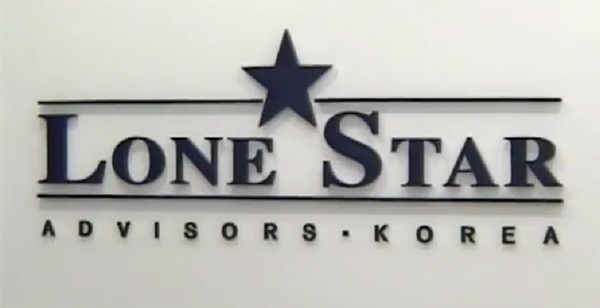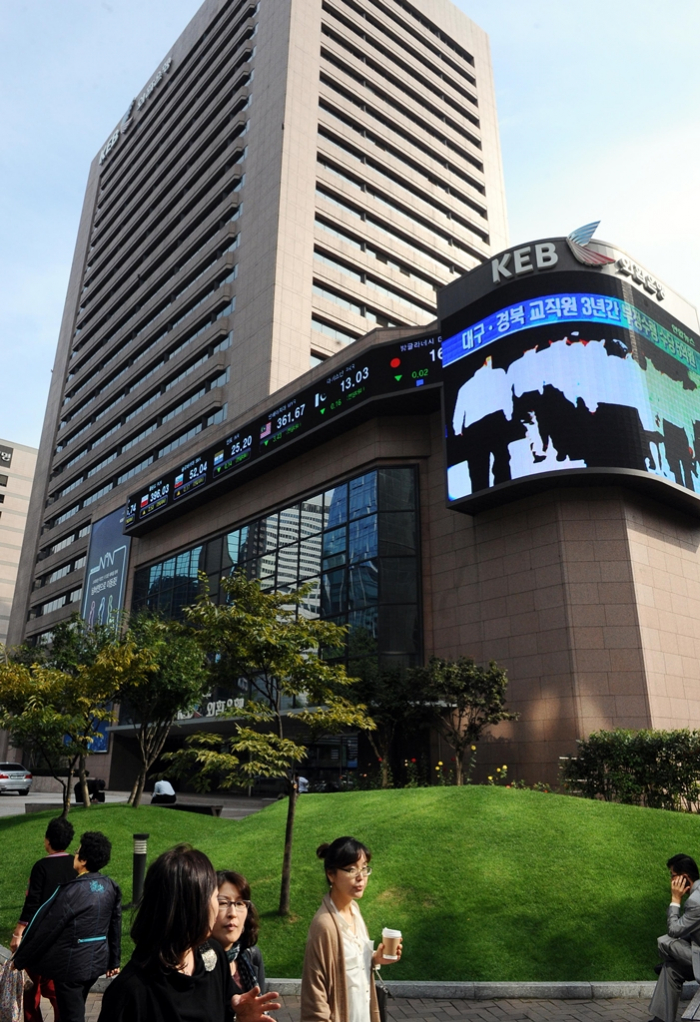Private equity
Korea, Lone Star brace for ruling on decade-long dispute
The ICSID’s decision will impact other ISDS cases including ones against Elliott Management, Mason Capital
By Apr 19, 2022 (Gmt+09:00)
3
Min read
Most Read
LG Chem to sell water filter business to Glenwood PE for $692 million


Kyobo Life poised to buy Japan’s SBI Group-owned savings bank


KT&G eyes overseas M&A after rejecting activist fund's offer


StockX in merger talks with Naver’s online reseller Kream


Mirae Asset to be named Korea Post’s core real estate fund operator



An international arbitrator is set to rule on a decade-long legal tussle between South Korea and Lone Star Funds as early as next month over the US private equity firm’s sale of a bank in the Asian country.
Lone Star initiated the arbitration in November 2012, making a filing with the World Bank’s International Centre for Settlement of Investment Disputes (ICSID) to request the South Korean government pay $4.7 billion for its estimated losses related to the Texas-based PEF’s sale of a stake in Korea Exchange Bank (KEB).
The ICSID has recently notified both parties that the institution expects to complete its final ruling on the case by April 30, which will be sent by email, according to legal sources in South Korea on Monday.
There is only one award in an ICSID case, and it is the tribunal's final decision that disposes of the case, according to the arbitration institution. Any other ruling before the final award, such as a decision on liability, is not considered an award, and recourse cannot be taken against it until after the award is rendered, it said.
Legal sources in South Korea predicted the final ruling on the South Korea-Lone Star case to come in May or June, considering such procedures.
The award is final and binding and can be recognized and enforced in any ICSID member state. There is no appeal against an award, but there are limited post-award remedies available under ICSID conventions.
Once the presentation of the case is completed, the proceeding is declared closed and the award must be signed in the next 120 days, with the possibility of an extension of 60 days. Usually, the closure of the proceeding occurs after deliberation by the tribunal has concluded that it has no further questions for the parties.
DELAYED APPROVAL?
Lone Star sought compensation through investor-state dispute settlement (ISDS), saying the PEF suffered losses due to delayed approval by the government on the sale of a stake in KEB.
The PEF bought a 51% stake in the bank for 1.4 trillion won ($1.1 billion) in 2003 and signed a deal to sell it to HSBC for $6.2 billion in 2017. But the deal collapsed in September 2008 as HSBC decided not to purchase the Korean bank. Lone Star eventually sold the KEB stake to South Korea’s Hana Financial Group for 3.9 trillion won in January 2012.

Lone Star said the deal with HSBC collapsed because the South Korean government delayed approval. In addition, the PEF said the government pressured to lower the price and impose unfair taxes when it sold the stake to Hana.
The government, however, said the authorities postponed the decision as Lone Star's legal situation affected its eligibility as a major stakeholder, as it faced a criminal trial for alleged stock price manipulation of a former credit card unit of KEB.
The country also said the sales price fell because the US firm was found guilty in the case, denying the claim the authorities intervened in negotiations for the sale. On taxation, the authorities said they considered specific facts for each taxation.
IMPACT ON OTHER ARBITRATION CASES
Despite the government’s opposition to Lone Star's claims, the ICSID is likely to make a favorable ruling for the US firm as ISDS is a system to protect investors, legal sources said.
The decision is expected to have an impact on other ISDS cases since it is the first against South Korea with the largest compensation request. The government is currently dealing with six ISDS cases against foreign companies including Elliott Management, Mason Capital Management and Schindler Group.
The government was reportedly considering steps to protest any unfavorable decisions affecting the country, although it is difficult to reverse such a ruling in an international arbitration case.
The authorities are also mulling over various measures to handle ISDS cases and the Ministry of Justice has already proposed the establishment of a dedicated unit to deal with international arbitration cases to the new government’s transition committee.
Write to Jin-Seong Kim at jskim1028@hankyung.com
Jongwoo Cheon edited this article.
More to Read
-
 BatteriesSK agrees to pay $1.8 billion to LG, settles battery legal dispute
BatteriesSK agrees to pay $1.8 billion to LG, settles battery legal disputeApr 11, 2021 (Gmt+09:00)
4 Min read -
 BatteriesLG Chem CEO vows stern action against SK in battery legal dispute
BatteriesLG Chem CEO vows stern action against SK in battery legal disputeMar 25, 2021 (Gmt+09:00)
3 Min read
Comment 0
LOG IN


